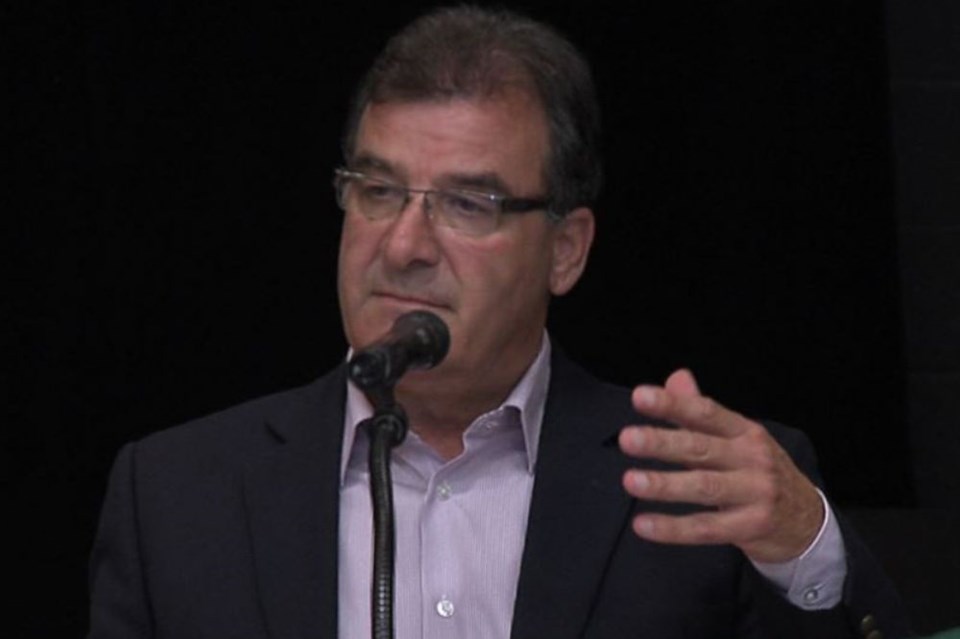The following is an opinion column penned by Kenora's Liberal MP Bob Nault:
To most parents, losing a child to suicide is unfathomable; a pain so heart-breaking that it cannot even be imagined. This pain is becoming a daily reality for families in First Nations communities in Northern Ontario, most recently in Pikangikum and Nibinamik. Parents are losing their children. Brothers and sisters are losing their siblings. Friends are losing friends. As a parent, Member of Parliament for the Kenora riding, and former Minister of Indian and Northern Affairs, I believe this is completely unacceptable.
The catalysts behind these suicides are complex, varied, and each scenario presents a unique case. There are, however, a few common threads: many of these First Nations are remote, rural, and isolated, so access to mental health services remains a major concern, as many communities have limited, if any, direct access to counselling or psychiatric services. When these resources are needed, patients are often transported from their communities to larger urban centres, such as Thunder Bay. This process is far from flawless, as patients are often faced with long wait times for beds, while simultaneously dealing with being away from their family.
While accessible, appropriate healthcare is a primary concern, it is not the only challenge faced by many First Nations people. We must also look at connecting these communities with roads to deal with isolation and remoteness, connect them to the electrical grid, and invest more in education in order to develop multi-faceted, sustainable solutions to help prevent future tragedies. Take, for example, Shoal Lake 40 First Nation, which has been cut-off from the mainland for more than 100 years. Official construction on a permanent, all-weather road has begun, which will aid in ending the community’s boil water advisory, increase safety, and lead to greater economic opportunities for the residents.
Perhaps most importantly, children need the opportunity to be children. They need hope. They deserve to attend school, engage in play and sport. Right now, First Nations children are patrolling their neighbourhoods with Canadian Rangers and community leaders to ensure that their friends are safe. This should not be the reality for any child in Canada.
Recently, I, along with Health Minister Jane Philpott, visited Wunnimun Lake First Nation, where she announced $500,000 for the planning of a new health facility and $465,000 for Wunnumin Lake’s Choose Life Program, designed to expedite access to mental health services and supports for First Nations children and youth in NAN communities who are at risk of committing suicide. These types of Indigenous led programs are needed to combat this crisis.
Unfortunately, First Nation communities have felt the crippling effects of suicide epidemics for far too many years. These same effects ripple throughout the Indigenous community, the region of Northwestern Ontario, and internationally. Despite media coverage, despite the studies, meetings, and inquiries, Indigenous youth suicide remains the skeleton in Canada’s closet. Our current initiatives are not enough: they are often reactive and only set in motion after a crisis has occurred. We need more accessible, better funded, proactive programming and projects in place to prevent future tragedies. We need to help these communities find hope.
On July 24, Minister Philpott, Ontario Health Minister, Eric Hoskins, and other Indigenous leaders will meet in Ottawa to discuss this healthcare crisis. We need to finally deal with the jurisdictional disputes between the provincial and federal governments as to who is responsible for the health and overall well-being of Indigenous people. In the short term, I hope the outcomes of this meeting provide First Nations with direct, immediate, and necessary access to resources in their time of need, so they are not left scrambling for solutions.
In the coming months, I will continue meeting with the chiefs, councils, and leaders of First Nations within Northern Ontario, focusing on those who have been affected by suicide. Each community has both the knowledge and answers needed to end their crisis; what they require is support. They know, better than anyone else, that when support ends and projects lose funding, they lose children.
This cannot be a partisan issue. It is not about which party is in power, or the optics of providing Indigenous support for political gain. Parties of all stripes, whether federal or provincial, must agree to long-term programs that are not called into question with each change in government. We need to do better and stop losing Indigenous youth. While long-term solutions and planning are required, we also need immediate, short-term solutions to turn this epidemic around.
There simply is no ‘cookie cutter’ solution to this ongoing crisis, but by setting politics aside and working together, I am confident we will find a way forward. I am encouraged by the level of commitment from both the federal and provincial governments, as well as a number of agencies. I hope, this time, we are able to develop sustainable solutions to put an end to this continued tragic loss of life. As a community, region, province, and country, we must support and join with Indigenous leaders and their communities on the path to healing and recovery. We must not, and cannot, fail.
Bob Nault
